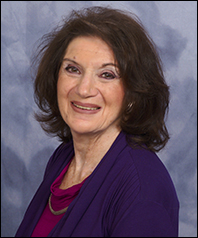Guest Article By : Beverly Nadler CH CMT
So What Does Kabbalah Actually Teach?
It is said that Kabbala teaches the origins of “everything”, that it is the secret of life itself. Kabbala revealed startling information about the nature of our planet and our physical bodies centuries before scientists came to the same conclusions. The quantum physics description of our universe — “a unified field of energy” that contains the vibrations of everything that has ever existed — was long ago taught by Kabbalists.
But that’s only the beginning, for Kabbalah touches upon almost any subject you can think of, and gives profound and accurate information that is first being “discovered” by science. Besides its scientific revelations, Kabbalah teaches that the purpose of human life is spiritual growth, and that in order for humans to evolve they must learn to share, to love unconditionally, to give gratitude and to restrict negative impulses.
In Kabbalah there is no such thing as an angry punishing G-D. Everything occurs by natural LAW, and is for our growth and well-being — even if we cannot recognize this because of our lack of knowledge (knowledge that can be found in Kabbalah and the Zohar.)
Besides being an almost endless source of knowledge (much of which has been hidden from the masses), Kabbalah gives us practical and effective tools for spiritual growth, change, and the fulfillment of our heart’s desires. The Kabbalah Center calls their tools “technology for the soul”, and claims it is the best because it is Divinely channeled.
I am drawn to Kabbalah because of its similarities to quantum physics — even though this spiritual teaching pre-dates quantum physics, as we know it — by centuries. I am also drawn to Kabbalah because its “purpose” is the same as mine, to help people raise their vibrations and evolve in consciousness. This is the only way we can bring more peace, health and happiness to our planet.
Criticism of Kabbalah
Of course, like anything that differs from mainstream beliefs, Kabbalah sparks criticism and controversy. Much of the criticism has to do with the Kabbalah Centre, rather than with the teachings themselves. Some orthodox rabbis and Kabbalists consider what the Bergs are doing to be sacrilegious, like turning sacred Kabbalah into a form of pop psychology.
There are also disputes about the actual founding of the Kabbalah Centre and about Rav Berg’s background — an insurance salesman who became a rabbi. (Frankly, I fail to see anything wrong with that.) Disgruntled former members complain that the Kabbalah Centre is greedy, and the Bergs are criticized for their wealth-building real estate and business involvements. (The Bergs don’t see themselves as being greedier or different than, say, the Catholic Church — probably the richest organization in the world – and claim the money is used to bring Kabbalah and Zohars to a world that desperately needs more “light”.)
Frankly, to me, these criticisms have little meaning. What I consider important is whether the teaching itself has value in a world that seems to have gone crazy and whether Kabbalah offers intelligent explanations for how and why a “just” and loving God “allows” so much discord, chaos, sickness and cruelty.
Why Things We Consider “Bad” Are “Allowed” to Happen
In order for the negative experiences – both personal and global – to make sense, it is necessary to understand that we live in a universe of law and order. Since this is an energy universe, the laws are the same as the laws of energy and physics.
Motivational and personal growth trainers and authors refer to the “Law of Attraction” and tell us this law explains how and why we get what we get in life, but rarely do they tell us exactly how it operates, nor do they tell us about the Law of Polarity. The Law of Polarity (aka “the law of opposites”) explains that positive and negative (yin and yang, good and bad) always exist simultaneously – as do male and female, joy and sadness, love and hate, war and peace, prosperity and poverty, order and chaos, light and darkness, etc.
Therefore, that which we call negative is part of our universe. However, you can control the amount of negativity in your life. Understanding and knowing how to best work with Universal Laws, especially The Law of Polarity, is the “key” to transmuting and transforming negative energy.
Do you want to see more love, abundance and joy in our world and less crime, poverty and suffering? As Kabbalah has always taught (and quantum physics confirms), there is a hidden order beneath chaos and the “butterfly effect” is very real. (You may know this as “when a butterfly flaps its wings in Tokyo, there is a tornado in Kansas.”)
In other words, everything affects everything. The dominant frequency of the collective vibrations of mass consciousness determines what happens to us on a global scale – whether good, bad or indifferent. (Did you know that 1/3 of all natural disasters in the 20th century occurred in the 1990s? (That says a lot about the negative vibrations of mass mind consciousness, doesn’t it?) To experience more positive events, we have to transmute mass mind consciousness.
That means that when enough people release their negativity (especially emotional negative traumas stored in their psyche and the cells of their body) and project high frequency, positive vibrations into the universe – instead of the low frequency, negative vibrations of fear, anger, hatred, resentment, envy, greed, etc. (that are in harmony with crime, murder, suffering, illness, political upheavals, terrorism, natural disasters, etc.) – our universe will indeed change! And as Kabbalah teaches, to change the world, we must begin with ourselves!
Kabbalah and Reincarnation
Some critics find fault with Kabbalah’s teaching of reincarnation. Of course, belief in reincarnation is not limited to Kabbaliah. 20% of the world’s religious populations are Hindus and Buddhists who believe in reincarnation, and numerous polls indicate that at least 25% of Americans and close to that percentage of Europeans also believe in reincarnation.
As a matter of act, everyone who follows an organized religion would probably “believe in” reincarnation today, if not for the first meeting of the Council of Nicea in 325AD. That’s when Constantine chose over 300 religious leaders (many of whom strongly disagreed with each other) to revamp the religious texts of the day. The Council decided what religious books and teachings they would accept, and which ones they would delete or alter. The idea of reincarnation was considered dangerous and, along with other controversial concepts and books, was removed from religious texts. The result of this first Council of Nicea is the St. James version of the Holy Bible.
To believers, reincarnation offers reasonable and comforting explanations for why bad things happen to “good” people and to children who have not been alive long enough to project enough negative vibrations to attract their negative and even tragic experiences.
The good news, according to Kabbalah, is that as you spiritually evolve and become more giving, less judgmental and more unconditionally loving, you can wipe out the cycle of what has been called “karma” (law of cause and effect) that is still operating from past lives.
Check out the books below by Beverly Nadler !







